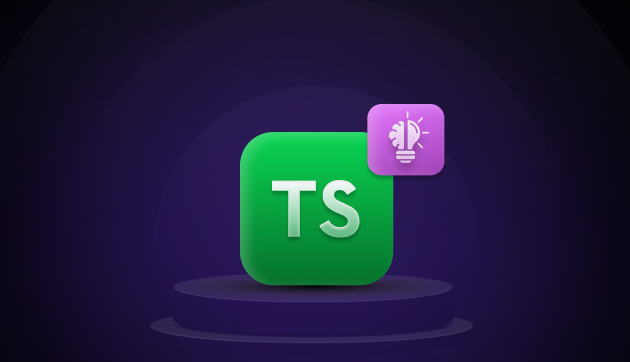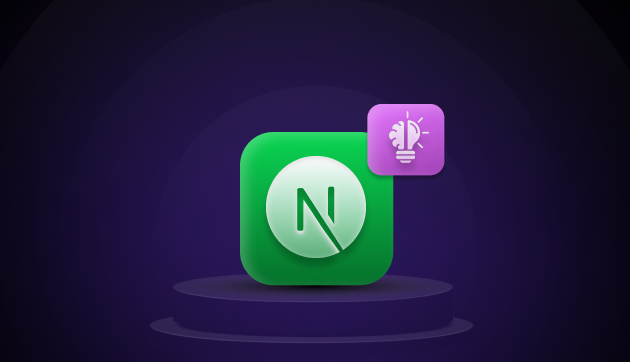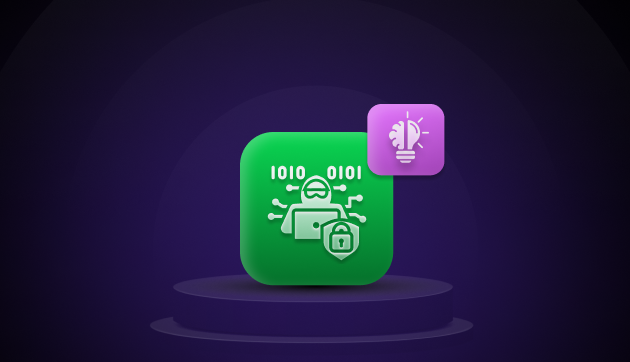![Top Artificial Intelligence Project Ideas for Students [2024] 1 Post thumbnail](https://www.guvi.in/blog/wp-content/uploads/2024/04/feature_image2.webp)
Top Artificial Intelligence Project Ideas for Students [2024]
Oct 22, 2024 4 Min Read 32594 Views
(Last Updated)
Artificial Intelligence (AI) offers possibilities for students eager to explore technology. From basic chatbots to advanced autonomous systems, AI projects provide a platform for innovation and skill development.
In this blog, we’ll explore various AI project ideas suitable for students at all levels, helping you start your journey towards becoming an AI innovator. Let’s start this exciting exploration together!
Table of contents
- What is Artificial Intelligence?
- Artificial Intelligence Project Ideas for Students
- Basic AI Projects for Beginners
- Intermediate AI Projects
- Advanced AI Projects
- Conclusion
- FAQs
- What skills do I need to start an AI project as a student?
- How can I access the resources and tools needed for AI projects?
- What are some common challenges in student-led AI projects, and how can I overcome them?
What is Artificial Intelligence?
Artificial Intelligence (AI) refers to the simulation of human intelligence in machines that are programmed to think and learn like humans. The term can also be applied to any machine that exhibits traits associated with a human mind, such as learning and problem-solving. AI can be categorized into two main types:
- Narrow AI: Also known as weak AI, this type of artificial intelligence operates within a limited context and is a simulation of human intelligence. Narrow AI is designed to perform a narrow task (like facial recognition, Internet searches, or driving a car). Most AI used today is narrow AI.
- General AI: Also known as strong AI, this type of AI system possesses the ability to perform any intellectual task that a human being can. General AI is still a largely theoretical concept, with no practical examples as of yet.
Also Know More About Innovate or Stagnate: Comprehensive Generative AI Terms For Enthusiasts
AI is built by using various approaches, including machine learning and deep learning, which allow a machine to improve at tasks based on previous experience, data-driven models, and algorithms. AI applications can range from simple tasks like controlling your smart home devices to more complex operations such as managing logistics for global supply chains or assisting in medical diagnostics.
Ready to take your AI skills to the next level? Enroll in GUVI’s Artificial Intelligence & Machine Learning Courses today! Learn AI and ML, gain practical experience, and prepare yourself for an innovative future. Don’t miss out—start your journey now!
Now that we understand what artificial intelligence is, let’s explore some engaging AI project ideas for students to put their knowledge into practice.
Artificial Intelligence Project Ideas for Students
The following AI project ideas for students are organized into three tiers—basic, intermediate, and advanced—catering to different levels of expertise and complexity. Here’s a brief overview of each project category:
Basic AI Projects for Beginners
Beginner AI projects are designed as entry points into artificial intelligence. They introduce fundamental concepts and techniques in a digestible format, helping students grasp the basics of AI workflows, data handling, and simple model building. These projects encourage experimentation with user-friendly tools and libraries, making them ideal for those new to the field.
1. AI Chatbot
This project focuses on creating a chatbot that can understand and respond to user queries using natural language processing (NLP). Students will learn to program the chatbot to handle various topics, improve its conversational abilities, and possibly integrate it with other APIs to enhance functionality.
Features
- Incorporates basic NLP techniques for text parsing and response generation.
- Interactive interface that can be embedded in websites or apps.
- Utilizes conditional statements and pattern matching for response accuracy.
- Provides a foundation in AI-driven customer service solutions.
- Encourages understanding of user intent and context within conversations.
![Top Artificial Intelligence Project Ideas for Students [2024] 2 AI Chatbot](https://www.guvi.in/blog/wp-content/uploads/2024/05/AI-Chatbot.webp)
Also Read: Top 6 Programming Languages For AI Development
2. Image Classification
In this project, students will build a model to classify images by identifying and labeling the objects they contain. This introduces the core concepts of neural networks, particularly convolutional neural networks (CNNs), which are important in visual data analysis.
Features
- Teaches image preprocessing and augmentation to improve model training.
- Involves using pre-trained models to understand transfer learning.
- Engages with real-world data sets to enhance learning outcomes.
- Exposes students to challenges in AI like overfitting and underfitting.
- Provides insights into the applications of AI in digital media and technology.
![Top Artificial Intelligence Project Ideas for Students [2024] 3 Image Classification](https://www.guvi.in/blog/wp-content/uploads/2024/05/Image-Classification.webp)
Also Read: 7 Benefits of AI-Powered Learning Environments
3. Predictive Text Generator
Students will develop a text generator using models that can predict the next word in a sentence based on previous words. This project covers the basics of sequence modeling, which is important in many AI applications like language translation and content creation.
Features
- Implements recurrent neural networks (RNNs) or LSTM (Long Short-Term Memory) networks.
- Demonstrates the handling of sequential data and temporal dependencies.
- Introduces students to challenges in natural language understanding (NLU).
- Enables exploration of various libraries and frameworks like Keras or TensorFlow.
- Develops skills in data collection, processing, and model optimization.
![Top Artificial Intelligence Project Ideas for Students [2024] 4 Predictive Text Generator](https://www.guvi.in/blog/wp-content/uploads/2024/05/Predictive-Text-Generator.webp)
Also Read: Exploring the Influence of AI and Machine Learning in Full Stack Development [2024]
Intermediate AI Projects
Intermediate AI projects are more challenging, requiring a deeper understanding of AI functionalities and a better understanding of machine learning algorithms. These projects help bridge the gap between basic concepts and real-world applications, pushing students to integrate multiple components and manage more complex datasets.
4. Voice-Activated System
This project involves creating a system capable of recognizing spoken words and converting them into actions or responses. It offers a practical application of speech recognition technology, emphasizing the integration of AI with everyday devices.
Features
- Utilizes advanced libraries and APIs for speech-to-text conversion.
- Involves an understanding of acoustic and language modeling.
- Teaches how to handle audio data and preprocess it for accurate recognition.
- Challenges students to create customizable voice commands.
- Explores the intersection of AI and user interface design.
![Top Artificial Intelligence Project Ideas for Students [2024] 5 Voice-Activated System](https://www.guvi.in/blog/wp-content/uploads/2024/05/Voice-Activated-System.webp)
Must Explore: 6 Best AI Tools for Coding
5. Facial Recognition System
Students will develop a system that uses computer vision to identify individuals from images or video streams. This project provides a hands-on approach to learning how AI can be used for security and personal identification purposes.
Features
- Engages with complex algorithms for feature extraction and matching.
- Demonstrates the importance of ethical considerations in AI applications.
- Provides experience with real-time data processing and analysis.
- Introduces advanced computer vision techniques and libraries.
- Explores the potential for AI to impact law enforcement, marketing, and personal devices.
![Top Artificial Intelligence Project Ideas for Students [2024] 6 Facial Recognition System](https://www.guvi.in/blog/wp-content/uploads/2024/05/Facial-Recognition-System.webp)
6. Recommendation System
Build a recommendation engine that suggests products or content to users based on their past behavior and preferences. This project is essential for understanding data science and machine learning’s role in personalized user experiences.
Features
- Involves techniques like collaborative filtering and matrix factorization.
- Teaches data manipulation and algorithm tuning.
- Explores the impact of AI on consumer behavior and business strategies.
- Demonstrates handling and analysis of large, complex datasets.
- Encourages ethical discussions on privacy and data security.
![Top Artificial Intelligence Project Ideas for Students [2024] 7 Recommendation System](https://www.guvi.in/blog/wp-content/uploads/2024/05/Recommendation-System.webp)
Also Read: The Role of Artificial Intelligence in Frontend Development
Advanced AI Projects
Advanced AI projects tackle complex problems with sophisticated solutions, often mimicking or enhancing human capabilities. These projects require an in-depth understanding of advanced machine learning techniques, extensive programming skills, and often, a multidisciplinary approach.
7. Autonomous Driving System
This project simulates the core technology behind self-driving cars, focusing on perception, decision-making, and vehicle control. Students will learn about the integration of various sensors and the application of deep learning to enable autonomous navigation.
Features
- Combines data from cameras, radar, and lidar for a comprehensive understanding of the environment.
- Uses deep neural networks for object detection and path planning.
- Involves simulation tools to test and refine driving algorithms safely.
- Teaches critical aspects of AI safety, ethics, and real-time decision-making.
- Provides insights into the future of transportation and robotics.
![Top Artificial Intelligence Project Ideas for Students [2024] 8 Autonomous Driving System](https://www.guvi.in/blog/wp-content/uploads/2024/05/Autonomous-Driving-System.webp)
8. AI in Healthcare
Develop applications that use AI to enhance healthcare delivery, such as tools for diagnosing diseases, predicting patient outcomes, or automating routine tasks. This project highlights AI’s transformative potential in medical sciences.
Features
- Uses pattern recognition for analyzing medical images or genetic data.
- Integrates AI with bioinformatics for personalized medicine.
- Involves handling sensitive data, emphasizing data protection and patient privacy.
- Provides a multidisciplinary approach, combining AI with clinical knowledge.
- Shows the potential for AI to improve efficiency and outcomes in healthcare.
![Top Artificial Intelligence Project Ideas for Students [2024] 9 AI in Healthcare](https://www.guvi.in/blog/wp-content/uploads/2024/05/AI-in-Healthcare.webp)
Know About the 14 Best AI Image Generator Tools
9. Robot Navigation
Program a robot to autonomously navigate through different environments, using AI to process sensory input and make navigational decisions. This project involves deep learning in robotics, sensor integration, and real-time AI applications.
Features
- Teaches spatial awareness and environmental mapping.
- Involves complex algorithms for obstacle avoidance and path optimization.
- Uses real-time processing of sensory data for decision-making.
- Explores the integration of hardware and software in robotics.
- Demonstrates the challenges of AI in dynamic, unpredictable environments.
![Top Artificial Intelligence Project Ideas for Students [2024] 10 Robot Navigation](https://www.guvi.in/blog/wp-content/uploads/2024/05/Robot-Navigation.webp)
Find Out About 4 Best Programming Languages For Robotics You Should Learn
Each project not only helps in building technical proficiency but also encourages creative solutions to real-world problems, preparing students for future challenges in AI.
Conclusion
Student-led AI projects not only enrich the learning experience but also drive forward the tech industry with new ideas and innovations. Schools, universities, and educational platforms should continue to support and promote these opportunities, enabling students to make impactful contributions to technology and society at large.
Also Read: Best Product-Based Companies for AI Engineers in 2024
FAQs
What skills do I need to start an AI project as a student?
To begin an AI project, basic programming knowledge, particularly in languages like Python, is essential. Familiarity with data handling and some mathematical concepts like statistics and algebra can also be helpful.
Beginners should start with simpler projects that require basic coding and data analysis skills before moving to more complex AI applications that involve machine learning and neural networks.
How can I access the resources and tools needed for AI projects?
Many AI tools and libraries are available for free and are supported by extensive documentation and community forums. For example, Python libraries like TensorFlow, PyTorch, and sci-kit-learn are widely used in AI projects and offer robust support for beginners.
Additionally, platforms like GitHub provide access to open-source projects and code examples.
What are some common challenges in student-led AI projects, and how can I overcome them?
One common challenge is the complexity of managing and processing large datasets. To handle this, students can use data manipulation tools like Pandas and NumPy in Python.
Another challenge is the fine-tuning of models to improve accuracy without overfitting. This can be addressed through cross-validation techniques and by adjusting model parameters.
































Did you enjoy this article?